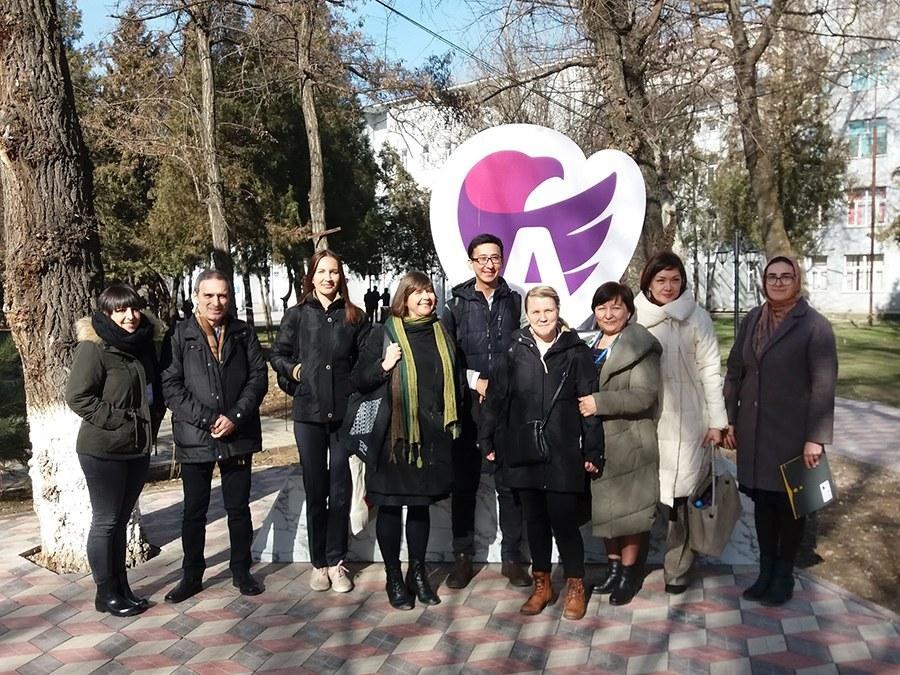TAMK implants master-level sustainable waste management education in Russia and Kazakhstan

TAMK planned the project in cooperation with its partner university ITMO from St Petersburg. TAMK and ITMO have cooperated for a long time. The need for the project was clear because the partner countries had hardly any master-level education in the field. The Capacity Building in Higher Education (CBHE) funding programme offered a good possibility for such a development.
“In addition, it is good that partners with varying experience participate in CBHE projects. It was great to have Kazakhstan in the project to increase the impact of the project,” says Project Manager Ella Kallio from TAMK.
According to Kallio, the partner universities think that the project strengthened their competitiveness. As a result of the project, the universities offer education on waste management and sustainable development themes. They also modernised their working life cooperation. The bearing thought of the Enhancing Competences of Sustainable Waste Management in Russian and Kazakh HEIs (EduEnvi)project was to develop together on the target countries’ terms and based on their needs.
Capacity was strengthened
The EduEnvi project modernised and internationalised higher education in the partner countries. The partners considered that it was an important result that thinking transferred more from teaching to learning during the project. It is a great achievement in countries where teacher-centred teaching still prevails.
“Our Kazakhstan partner informed us that she was chosen the teacher of the year in her university. Her and her team’s eagerness, openness to change and good drive were apparent,” Ella Kallio tells.
Shokan Ualikhanov Kokshetau University’s Best University Teacher title was awarded to Doctor Aigul Kurmanbayeva. She participated in the university’s competition on development and publication of e-learning resources and improvement of professional and pedagogical qualifications.
“I received maximum points thanks to the online course Introduction to Environmental Risks developed by the EduEnvi project and participation in training seminars, including an online tools workshop at TAMK”, Kurmanbayeva tells about the background to the award.
Equipment purchases of the EduEnvi project improved the universities’ technical abilities to organise web-based education. During the project, teachers implemented web-based courses for the first time. TAMK’s role was to work as the expert of web-based teaching pedagogy. The teachers who participated in the project were much sought-after in their organisations and among their cooperation partners during the pandemic.
“We organised practical webinars and workshops for our partners. The partners gave a lot of good feedback on them. The hands-on work was necessary,” Kallio says.
The aim is to continue the cooperation. Cooperation with ITMO continues with research, development and innovation projects and mobility cooperation. Kazakhstan has also contacted TAMK to continue the cooperation. The new Erasmus+ programme season probably gives possibilities to it.

Pandemic called for situational awareness
EduEnvi ended in October 2021. The project was originally supposed to end a year earlier but the pandemic stroke when piloting of the developed courses had ended.
“The coronavirus treated the partners harder than us in Europe and the partner university teams did not avoid deaths either,” Ella Kallio says.
It became more difficult to promote the project results in seminars and organise demonstration workshops but the events were organised either online or face-to-face after the pandemic eased.
Even if experiences of remote work were scarce, in their final report the partners wrote positively about the situation: ”When teaching and learning went online because of the pandemic, we were prepared.”
The most critical coronavirus phase was a good time to write publications. Russia and Kazakhstan were widely interested in the results. The partner universities’ partners, business cooperation partners, municipal and regional organisations and other higher education institutions were interested in the project achievements. In addition to the concrete results, ie the courses on sustainable waste management, there was also interest in design and organisation experiences of web-based education.
Ella Kallio wants to thank TAMK’s experts.
“As a project manager, I want to tip my hat to TAMK’s experts who threw themselves into challenging situations. Perhaps due to cultural differences, it was not possible to implement exact plans. We had to be flexible and improvise. Our motto was to play it by ear”.
Nine universities from Russia and Kazakhstan, partner universities from Denmark and Spain and other cooperation partners participated in the project, which started in 2017. The project was coordinated by Tampere University of Applied Sciences. The project was funded by the European Union’s Erasmus+ Capacity Building in Higher Education programme.
Text: Emmi Rämö
Photo: EduEnvi project records





